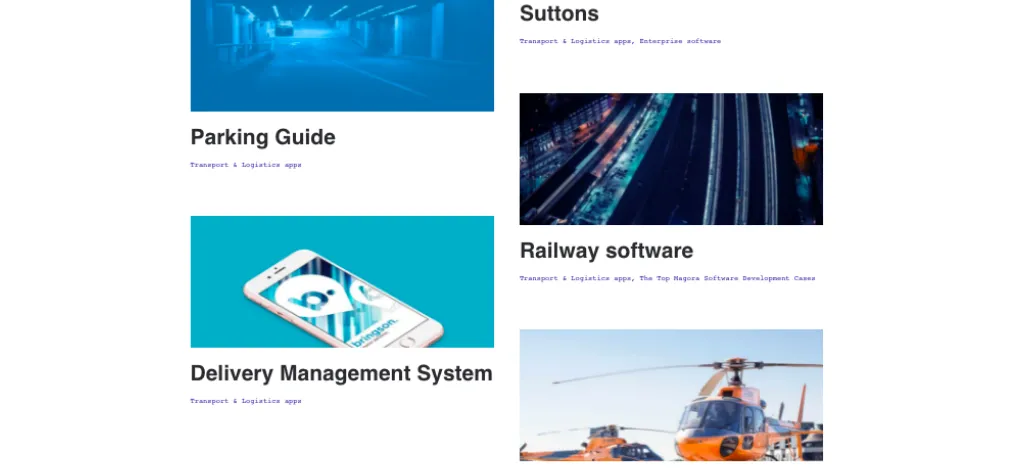
10 Top Questions about Web Developers

1. Who are Web Developers?
Web developers create and maintain sites, portals and web applications. They implement coding in HTML5 and CSS to make up the user interfaces of resources based
Advanced developers have additional knowledge of some web-related programming languages.
Developers can
- Content editing systems (CMS) creation or frameworks development. For example, there are programmers who create websites on Bitrix, WordPress, Joomla
and other open source platforms.
- Programming languages. The most popular web-related languages used by developers are JS, PHP, Python
and Ruby. While creating web platforms, specialists canutilise ASP, . Net, Node.JS and other resources. Those programmers who work with several languages can often earn more due to the smaller number of experts who focus on web development.
- Frontend and backend programming. Frontenders create the part of the site that the user sees by implementing the user interface and compiling the website
visualisation . Backend specialists work with the server side. Data storage, DB sampling, backupsand calculations are implemented on the server.
Our developers in Magora:

<H3> What Should Web Developers Know
Basic knowledge:
The most important are:
- HTML standard markup language. The latest version is HTML5;
- Cascading Style Sheets. The current version is CSS3;
- Implementation of a markup for different browsers on several OS: IE, Chrome, Firefox, Safari on Windows, MacOS, iOS
and Android.
Advanced skills required in the work:
- Several programming languages relevant to web development: JS and its modifications (AJAX, JQuery, ExtJS, HTMLX, NodeJS, JSON); PHP, Python, etc.
- Knowledge of the features of one or more site management systems (WordPress is one of the most popular), Zend, Yii and frameworks (AngularJS, React, Symfony, Laravel, .NET,
VueJS , Ember, PhoneGap), etc.; - A major plus is an understanding of the structured query language (SQL) or MongoDB for
organising the requests to a database; - Mastering design skills (including prototyping,
creation of mockups, UI and web-interface design). These skills will significantly increase the developer’s ranking compared to other specialists. - Ability to process a significant volume of information and excellent analytical skills to identify key problems and focus on effective solutions. Mature programmers usually handle several projects at once.
2. What Do Web Developers Do?
Junior web developer responsibilities include the implementation of the design concept on the website or web portal by implementing the HTML block and adding the style via CSS. Simple animation can be integrated by means of HTML5 and some special visual effects, such as shadows, via layers in CSS3.
More complicated tasks, such as the sampling of the DB, games and advanced animation effects are implemented with the help of JS and Node.JS.
Mid-level development specialists work with frameworks (...) to implement the features of a web application and
A senior developer is responsible for the
When you’re working with a professional web development company, some responsibilities can be delegated:
- communication with the client – to a project manager;
visualisation of the project concept and mockups – to the UI designer;- testing and quality control – to the QA team.
It is also the responsibility of the software developer to maintain the resource, website or app and implement any permanent modifications in accordance with the business owner’s requests.

3. How does a Web Developer Differ from a Programmer?
Within the industry, web developers are referred to by the following four terms: web builder,
Web builder – someone who arrange the blocks of open source constructors like WordPress. This job does not require a deep understanding of programming
A webmaster - someone who works with HTML and CSS to create websites and apps. Web development itself is not considered real programming because website building mainly involves rendering HTML, CSS
A web programmer is a person whose task consists mainly of writing code for the backend part of the web platform or application. This profession requires technical skills, logic and high-level qualifications. The programmer is usually responsible for his part of the program, the code of a separate function or feature. Such a person can work with any task – from software development to software creation.
What is the Role of a Programmer in site creation?
A programmer implements the ideas of a web designer, turning the layout into a working product. Their task is to develop client (frontend) or server (backend) parts of the future resource. There are also full-stack developers who are able to code a whole working application: both the backend and the frontend.
In IT, a developer is defined as someone who has to create something new from scratch. That is, in the broadest sense, they are responsible not just for writing the code but for the creation of the architecture of the future web project, its features, logic
A web developer can be not only an individual but a company or agency which primarily works with web solutions.
And one more relevant comparison: developers vs engineers in the video below
5. Who are Web Designers?
Quite often, the term web designer is used as a synonym for
Web designers are those who
6. Where do Developers Work?
I can suggest two classifications:
- freelance and office work;
- in-house and agency web development.
Corporate staff: Typically, developers are not constrained by the choice between office work and programming from home. Quite often even the most eminent IT corporations, such as Google, Yandex, Apple
Freelance developer: By choosing the freelancing lifestyle, a person can work independently, be involved in different projects and travel around the world all at the same time.
Web developers: in-house vs. agency
In-house development: the
Cons: a lot of routine work, lack of new experience and limitations of using historically implemented technology – if it’s a huge project, the same technology must remain in use for years.
IT agency: with a new project coming in nearly every week, working with an IT agency is great for experience and portfolio development. There’s the pressure of multiple tasks with strict deadlines for each one.
Magora staff is working here:

7. Where to Find a Good Web Developer?
You can choose a professional development team or hire a freelancer. If you want to build an enterprise-scale project from scratch while having a clear work schedule and qualified project management, you’d be wise to choose a web development company.
If you have the detailed software requirement specification on hand, created by a professional developer, you could look for a freelancer. Upwork.com and Businessofapps.com are popular sites with relevant staff.
If you’ve decided to collaborate with a development company, check the rating and reviews on an independent IT company aggregator such as Clutch.
Websites for Hiring a Freelancer
If you’re going to hire a freelancer, here’s a list of resources where you can find good developers:
- UpWork.com is a great online recruiting portal for all types of professionals, from designers to architects to personal assistants. In general, their system is very easy to use. You can create an account, make a job offer, receive proposals and choose the developer you like.
You can track the developer’s activity on your project and transfer payments right there. Another interesting feature is the option to test freelancers for all coding-related skills in HTML, CSS, JavaScript and so on, even if you don’t have these particular skills. - Fiverr.com is a completely different way of hiring freelancers. A designer or developer
publicises the type of work they wish to accomplish, such as creating retro logos, two minutes of animated advertising, creating book covers and so on. You can look for freelancers whospecialise in the type of job you wish to hire for and offer them your task. - Dribbble.com and 99designs.com are marketplaces full of designers who offer web and graphic design. The former is a professional designers’ society, where you can assess portfolios and personally contact any of the reps.
The latter is a freelance platform, where once you’ve published your project, you will have several designers available in advance – you just need to select a winner.
8. How to Check a Portfolio of IT Projects
Whoever you hire – a freelancer, a web-studio or a full-time specialist – go through the candidate's portfolio thoroughly, paying particular attention to the five points described below.
- Choose what you like. Track your first impression of the work presented in the candidate's portfolio. Pay attention not only to the
design, but also to the quality of the layout, meta tagsand other important details. - Estimate the site performance. Websites should load
quickly, because a modern user will not wait long for your page to open. According to Kissmetrics, sites that take four seconds or more to load can cost you 25% of your visitors. Therefore, we advise you to check the speed of a couple of sites from your potential developer's portfolio. The easiest way to do this is with Google PageSpeed Insights. - Check functionality. Test sites from a potential developer’s portfolio for functionality. On a commercial website, even the smallest gaps in functionality can prevent sales.
- Do not forget about the accessibility. Creating a truly high-quality site implies its availability to all categories of users, regardless of the physical capabilities of their devices and computers.
You shouldtherefore test the sites in your candidate's portfolio for compliance with general accessibility guidelines. The WAVE Web Accessibility Evaluation Tool can help you with this. Just enter the URL of the page – WAVE generates a report with possible availability problems. - Mind the clear code. The code should be easy to read and modify. Clear code is important because it allows you to quickly make changes to your site or transfer the project to another developer. Unfortunately, most of the page code may be hidden from you.
However, you can look at some things on the surface that can be indicators of how competent your candidate is in coding. For example, you can use the HTML validator from the World Wide Web Consortium (W3C). This tool will give you a list of warnings and errors in the HTML site.
9. What is a Web Developer’s Salary?
The average web developer salary ranges from £17K to £37K per year, but this isn’t the limit for a capable
10. How to Become a Developer and Where to Study
There are several options:
- If you’ve simply chosen your own path and do not have a professional degree, well-known universities can offer you a good basis for a future career. External help can significantly stretch the process.
- Look into special courses. For example, special educational programs at colleges or online training courses. You can choose any course you like and start learning with the help of tutors and the developer community, e.g. at https://stackoverflow.com.
To back up your portfolio and test your skills, take part in hackathons (special round-the-clock programming competitions). Each hackathon involves a set problem to be solved within a short period of time. In
Master the profession independently through ebooks, conferences, tutorials
Some trusted resources for web developers:
https://www.w3.org/ https://www.keycdn.com/blog/web-development-tools http://webdesignrepo.com/
More options for Studying: Bootcamp
Code Training Camp is a technical training program that teaches employers the web programming skills they’re looking for.
The coding training field allows students with strong coding skills to focus on the most important aspects of coding and immediately apply their new coding skills to solve practical problems.
The goal of many camp participants is to make the transition to a career in software development. They do this by learning how to create applications on the professional level – this gives them the foundation they need to build ready-to-use apps and demonstrate their skills to offer real value to potential employers.
The best way to growth in IT
The best way to study, however, is through working with a professional team of developers. At Magora, seniors are responsible for spreading their knowledge amongst the team.
The most experienced web developers are always ready to back up their colleagues with professional advice.
If you need a professional consultation about any software development project, contact Magora experts today. We’re always ready to help with the





